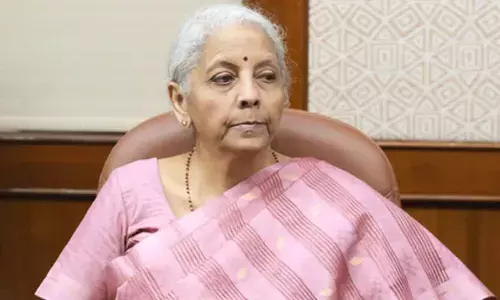Rashmi Tiwari, eco-friendly angel

Today, 4.5 billion people in the world live without a household toilet that safely disposes of their waste. The Sustainable Development Goals, launched in 2015, include a target to ensure everyone has access to a safely-managed household toilet by 2030. This makes sanitation central to eradicating extreme poverty.
Hyderabad: Today, 4.5 billion people in the world live without a household toilet that safely disposes of their waste. The Sustainable Development Goals, launched in 2015, include a target to ensure everyone has access to a safely-managed household toilet by 2030. This makes sanitation central to eradicating extreme poverty.
Today, for billions of people around the world, sanitation systems are either non-existent or ineffective. Human waste gets out and killer diseases spread, meaning progress in health and child survival is seriously undermined
The World Toilet Day might be over, but that doesn’t make this tale any less inspiring. A young Banjara Hills-based architect took creativity and eco-friendly concept to new heights by using plastic bottles to construct toilets along with a water tank for children of an Anganwadi School at Chilkoor village.
Meet Rashmi Tiwari, the youngster who constructed the toilet with up to 2,000 plastic bottles. With lack of toilets and sanitation problem across government schools, Rashmi chose to construct eco-friendly toilets.
While “The Anganwadi School in Chilkoor village does not have a toilet, and running water because of which students defecate in open. Moreover, plastic bottles are one of the biggest cause of pollution in the environment. That is why I thought to construct toilet with 1 litre plastic bottles,” she says.
Explaining about the construction of the eco-friendly toilet, the architect said that waste management has become a major challenge for the government and municipal bodies and that she opted for a sustainable construction by filling plastic bottles with mud. The construction was completed within 10 days with a cost of Rs 25,000.
Rashmi said that the Swacch Bharat Mission was created to deal with issues of waste management which is the need of the hour. She urged all citizens to turn the city into an eco-friendly place. By 2030, the Sustainable Development Goals aim to reach everyone with sanitation, and halve the proportion of untreated wastewater and increase recycling and safe reuse. If more people like Rashmi take up the onus of responsibility, the dream is not far away.
By Aneri Shah




